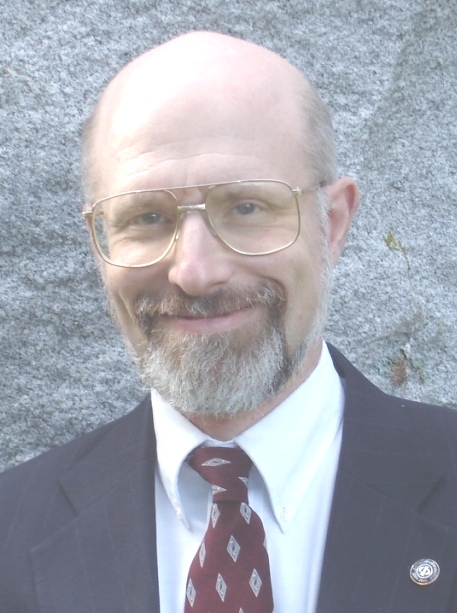Colliding Worlds: Juries in the World of Pervasive Connectivity and Social Media
Pervasive communication is more than a convenience; the societal landscape has been significantly altered by pervasive connectivity and the resultant availability of information. Our practices must correspondingly be revised to reflect this new landscape. The pervasiveness of wireless communications has reached the threshold where the integrity of jury trials is at risk.
A delicate balance needs to be struck. Disconnecting jurors from the outside world is often no longer feasible. Jurors need to communicate with the outside world to maintain their normal personal and work lives: children must go to school, bills must be paid, and families must coordinate activities. It is the concomitant ready accessibility of information that poses a challenge to the courts. The availability of external information, beyond that vetted through the court process, can easily undermine the integrity of a trial. The World Wide Web and mobile apps provide ready, almost frictionless access to large volumes of seemingly useful information. Herein lays the basic challenge.
Social networking adds new dimensions to that challenge. The two way communications inherent in social media permit information to leak from trials with unpredictable consequences to all: including jurors, plaintiffs, and defendants. Some of the resulting leaks are naive; others represent unconsidered or deliberate misconduct. In addition to breaking the confidentiality of the jury process and causing contamination of the result, jurors may be inadvertently exposing both themselves and their fellow jurors to unconsidered dangers.
It has been said that “once three know a secret, it is no longer a secret”. A recent panel discussion raised the question of whether prospective jurors should be asked to provide the contents of their social network postings during voir dire. This question raises a number of collateral questions on how best to balance various privacy interests with the Constitutional right to a fair trial. It is yet another case of how social media has blurred the line between private and public.
Social media has blurred dividing lines: both public/private and ephemeral/permanent. The dividing line between private personal thoughts written in a diary and public pronouncements used to be clear; yet many now post micro-blog entries with abandon.[1] Even when these are in a forum with somewhat controlled readership, they are public, or at least potentially public. An ephemeral comment made on a telephone call is normally private, the same sent as a SMS text message may be far more easily retrieved later. Celebrities and others have found to their chagrin that even private calls and conversations can be recorded.[2,3]
The mass public adoption of these technologies presents a challenge for the courts, particularly when it comes to assuring the integrity of jury trials. The other day, I attended “Why the Legal Industry Needs to Change and Embrace Technology,” a panel discussion at ALM's LegalTech® 2011 conference in New York City. The panel was composed of three jurists, the Honorable Dennis M. Sweeney (Circuit Court for Howard County, Maryland, retired), the Honorable David J. Waxse (US District Court, District of Kansas), and the Honorable Ron Hedges (former United States Magistrate Judge).
In his remarks, Judge Sweeney expressed his concerns about the intersection between mass adoption of wireless communications and the Internet with the need for the courts to ensure fair and orderly trials. His concerns embraced several areas: wireless communications, Internet research, and social media postings that indicate prejudice or allow side communications between groups of jurors, communications about cases in progress with outsiders, or disclosure of information relating to deliberations in progress to outside parties through micro-blogging. Judge Sweeney was rightly concerned that appropriate means are needed to ensure that our system of justice retains its integrity and avoids distortion. These remarks were in line with an article he recently authored for the Journal of the Maryland Bar Association.[4]
Online research by jurors presents a challenge. Jurors have always brought their life experiences into the jury box; that is to be expected. Specific knowledge of the case is another matter entirely. In large cities, we lose sight of the fact that the venue of a case may be unavoidably familiar to jurors; but jurors are expressly instructed not to use references that have not been presented during the trial. However, the pervasive nature of the web and access through wireless devices has vastly reduced the effort to do external research, which is now a mere key click away. How does one convince those whose everyday routine naturally involves using Internet to research for the most mundane question to forego an action that seems as natural and automatic as breathing?
There is a huge volume of information on the World Wide Web. However, availability is no guarantor of quality, accuracy, or correctness. There is a real danger that a miscarriage of justice could result from such unvetted outside research. Some data is inaccurate due to politics (e.g., neo-Nazi); other data has been determined to be fraudulent (e.g. MMR vaccine connection to juvenile autism).[5] Introduced at trial, such information is subject to challenge or rebuttal, often outside of the jury's view. Done ex-officio, it can poison the result without challenge. The problem goes beyond the overtly inaccurate. Even services of generally high quality (e.g. Google Maps, AOL Mapquest) inevitably contain errors, particular when data has changed (e.g. road construction) or out-of-date (e.g., Google StreetView).
Detecting prejudice has similarly always been a challenge. Some people are openly prejudiced for one side or another (“all defendants are guilty”, “cops always lie”). Yet, prejudice is often far more subtle. Ferreting out prejudices of prospective jurors has, and likely will, always be a challenge. Judge Sweeney mused whether the time has come for the voir dire interview of prospective jurors to include questions about social media pages, including routine requests to login and allow judges, attorneys, and parties to view social media pages (e.g., FaceBook, Twitter, LinkedIn). Should this be in open court, or with a more limited audience? Obviously, this question is not limited to one particular social media site, all such sites would be considered relevant. What about dating sites? If a juror is found to have been less than completely forthcoming, is that grounds for mistrial?
Clearly, these questions have many facets, each with its own problems. Much of this material is not intended for viewing outside of its intended audience. Many make a variety of comments about employers, organizations, and others. Sometimes this is serious, other times it is intended to be jocular. There is a difference between complaining around the water cooler and publishing a negative article. Regrettably, social media easily bridges the gap between the two, making permanently public that which was private and ephemeral.
Also, what about guilt by association? Like many, my networks include a wide variety of extended family, friends, colleagues, and acquaintances spanning a wide range of persuasions. Should I be judged by the anarchist who is in my network because we were classmates in high school? Should I be judged by the professional colleague who is on the extreme other side of the political spectrum? This is an unexplored territory that sits between the private and the public. Striking a balance between these competing interests is as crucial as it is a delicate multi-way balancing act between competing interests and concerns. Identifying a correct balance between these competing concerns is crucial to ensuring the integrity of our juries.
Notes
| [1] | Robert Gezelter (2009, June 25) “Micro-Blogging and Personal Self-Surveillance” |
| [2] | Stephen M. Silverman (2009, June 16) “Alec Baldwin was Suicidal over Angry Voicemail to Daughter” People. |
| [3] | Michael Clancy (2007, December 11) “Transcripts: Bronx Teen Catches NYPD Lies on MP3 Player” The Village Voice Blogs |
| [4] | Dennis Sweeney (2010, November) “Social Media and Jurors” |
| [5] | Gardiner Harris (2010, February 3) “Journal Retract Paper Linking Autism and Vaccines” The New York Times, pp A9 |
References
- Michael Clancy (2007, December 11) “Transcripts: Bronx Teen Catches NYPD Lies on MP3 Player” The Village Voice Blogs. Retrieved from http://blogs.villagevoice.com/runninscared/2007/12/transcripts_bro.php on February 8, 2011
- Gardiner Harris (2010, February 3) “Journal Retract Paper Linking Autism and Vaccines” The New York Times, pp A9. . Retrieved from http://www.nytimes.com/2010/02/03/health/research/03lancet.html on February 8, 2011
- Robert Gezelter (2009, June 25) “Micro-Blogging and Personal Self-Surveillance” Retrieved from http://www.rlgsc.com/blog/ruminations/micro-blogging-and-personal-information.html on February 8, 2011
- Stephen M. Silverman (2009, June 16) “Alec Baldwin was Suicidal over Angry Voicemail to Daughter” People. Retrieved from http://www.people.com/people/article/0,,20285148,00.html on February 8, 2011
- Dennis Sweeney (2010, November) “Social Media and Jurors” Maryland Bar Journal. Volume XLIII, Number 6, pp 44-49











![Validate my Atom 1.0 feed [Valid Atom 1.0]](http://images.rlgsc.com/logos/valid-atom.png)
![Validate my RSS feed [Valid RSS]](http://images.rlgsc.com/logos/valid-rss.png)

